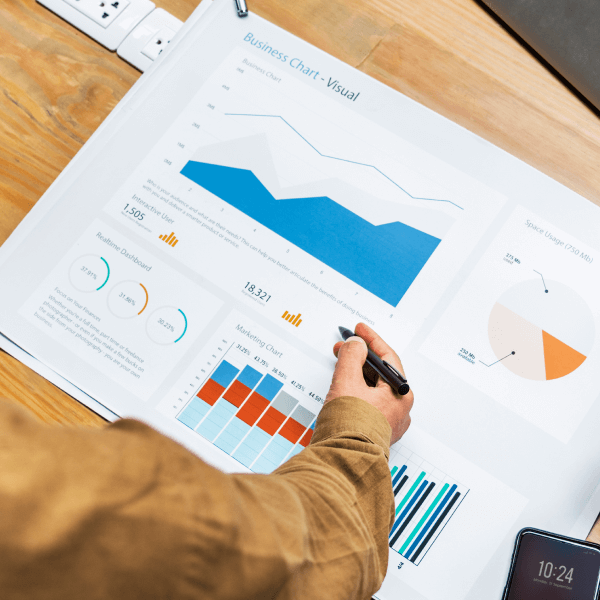The Digital Landscape of 2025: A Non-Negotiable Shift
The world in 2025 is hyper-connected. Digital touchpoints dominate every buying decision. Whether you run a café, a consulting agency, or a construction company, your customers are no longer asking if you have a website—they’re assuming you do. If you don’t, you’re already losing business to competitors who have embraced the digital evolution.
Always-Online: The 24/7 Expectation of Modern Buyers
Today’s consumer doesn’t operate on a 9-to-5 schedule. They browse at midnight, compare options during lunch, and make purchases while commuting. Your website serves as your round-the-clock representative, meeting customers exactly when they’re ready to buy or learn more.
Research Before Purchase: The Rise of the Educated Consumer
Gone are the days of impulse decisions. Consumers research meticulously before spending a dime. They read reviews, compare features, and look for validation online. If your business isn’t part of that research journey, you’re automatically eliminated from consideration.
First Impressions Happen Online
Before a customer ever walks into your office or sends you a message, they’ve already judged your business based on your website—or the lack of one. A clean, professional website signals credibility. An absent or outdated site does the opposite.
A Website as Your Digital Storefront
Think of your website as your flagship store in the digital world. It’s where people browse your offerings, understand your value, and decide whether they trust you. Without it, your business might as well be a shop with boarded-up windows.
Breaking Geographical Barriers
A physical location limits you to foot traffic and local visibility. A website catapults your brand beyond borders. Whether your customer is in Lagos, London, or Los Angeles, your digital doors are open.
Serving Customers While You Sleep
While you rest, your website works. It answers questions, collects leads, and even processes sales. It’s like having an unstoppable employee who never asks for a day off.
The Power of Organic Search (SEO)
Search engines like Google are the first place people turn when they need a product or service. A well-optimized website gives you a chance to show up in those searches naturally, without paying for every click.
Paid Advertising and Conversion Funnels
Running ads without a website is like throwing seeds into the wind. A website lets you guide visitors through a structured journey—from curiosity to conversion—using landing pages, forms, and strategic calls to action.
Retargeting and Remarketing: The Silent Persuaders
Most people won’t buy from you on their first visit. Retargeting ads, combined with your website, gently remind potential customers about your business, nudging them back until they’re ready to act.
Analytics: Knowing Your Audience Inside Out
Websites give you access to powerful analytics tools. You can see who visits, where they come from, what they like, and where they drop off. These insights help you refine your strategy with precision.

Behavioral Tracking for Smarter Business Decisions
By tracking user behavior—like clicks, scrolls, and time spent—you uncover patterns that guide product improvements, marketing messages, and customer support initiatives.
If You’re Not Online, You’re Invisible
In 2025, having no website is the equivalent of operating behind a locked door. People simply won’t find you. Worse, they may assume you’re out of business or untrustworthy.
Staying Ahead of Digital-First Competitors
Your competitors are investing heavily in digital presence. If you’re not, you’re handing them market share on a silver platter. A website levels the playing field, even if you’re a small business.
Crafting Your Narrative in Your Own Space
Social media posts get buried. Algorithms change. But your website is permanent real estate where you control the narrative. Tell your story, highlight your values, and showcase your uniqueness.
Showcasing Social Proof and Testimonials
Nothing builds trust like hearing from other happy customers. Your website is the perfect platform to display testimonials, case studies, and real-world success stories.
Turning Visitors Into Leads, 24/7
With lead capture forms, newsletter signups, and downloadable resources, your website becomes a lead generation machine. It works tirelessly, gathering potential customers while you focus on operations.
Online Booking, Orders, and Payments: Frictionless Transactions
Customers crave convenience. With online booking systems, shopping carts, and payment gateways, you remove friction from the buying process, making transactions seamless and secure.
Live Chat and AI Assistants: Modern Customer Service
In 2025, customers expect instant responses. AI chatbots and live chat features allow you to answer queries in real-time, improving satisfaction and increasing conversions.
FAQs, Resources, and Support Centers
Not every customer wants to call you for answers. A well-built FAQ page or support center empowers them to find solutions themselves, reducing workload and boosting loyalty.
Update Your Business Instantly
Unlike printed materials or TV ads, your website can be updated in real-time. Launch a new product? Run a flash sale? Make the change online instantly and let the world know.
Scale Up Without Physical Constraints
A website grows with your business. Add new pages, new services, or new languages as you expand—no need for new buildings or additional staff just to handle growth.
More Affordable Than Traditional Marketing
Billboards and TV ads cost a fortune. A website, once built, becomes a low-maintenance marketing tool that keeps delivering results year after year, often at a fraction of the cost.
Long-Term ROI: The Compounding Effect
The longer your website stays active and optimized, the more traffic and leads it attracts. It’s like planting a tree that bears more fruit over time.
Why Social Media Alone Is Not Enough
Relying solely on social media is risky. Platforms change rules overnight, accounts get hacked, or worse—banned. Your website is the one digital asset you truly own.
The Risk of Building on Rented Land
When you build your brand entirely on platforms like Facebook or Instagram, you’re at their mercy. A website is your private property in the digital universe.
Optimizing for Smartphones and Tablets
In 2025, mobile traffic dominates. If your website isn’t mobile-friendly, you’re frustrating potential customers and driving them straight to your competitors.
Mobile Search Dominance in 2025
More people search for businesses from their phones than ever before. If you’re not optimized for mobile search, you’re practically invisible to half the market.
Selling Products or Services Online
E-commerce is no longer optional—it’s expected. Even service-based businesses can sell consultations, courses, or memberships directly through their website.
Subscription Models and Passive Income Streams
Websites allow you to set up recurring revenue models—subscriptions, memberships, or exclusive content—that generate passive income while you focus on growth.
Protecting Customer Data
Cybersecurity is non-negotiable. A secure website with proper encryption protects customer information, building trust and ensuring compliance with privacy laws.
Staying Compliant With Digital Regulations
From GDPR to Nigeria’s NDPR, digital regulations are tightening. A professionally managed website helps you stay compliant and avoid legal pitfalls.
Getting Found by Local Customers
Local SEO strategies, like Google Maps integration and local keyword targeting, help nearby customers find you quickly when they search online.
Supporting Your Neighborhood Economy
When local businesses have websites, communities thrive. Customers can discover, support, and promote businesses in their own backyard, strengthening local economies.
Becoming a Thought Leader in Your Industry
Sharing educational content—through blogs, videos, or webinars—positions you as an authority. People trust brands that teach, not just sell.
Blogs, Videos, and Interactive Content
A dynamic website lets you create content that engages visitors, keeps them on your page longer, and encourages them to return for more.
Preparing for AI, VR, and Emerging Tech
As AI, virtual reality, and augmented reality become mainstream, your website will be the hub where you integrate these futuristic experiences into your business.

Digital Transformation as a Survival Strategy
Digital isn’t just an advantage—it’s survival. Businesses that resist digital transformation risk fading into obscurity. Your website is the foundation of that transformation.
The Website as the Heartbeat of Modern Business
In 2025, a website isn’t optional—it’s essential. It’s your business card, sales team, customer service desk, and marketing department rolled into one. It’s time to build it, optimize it, and let it work for you.


This is awesome